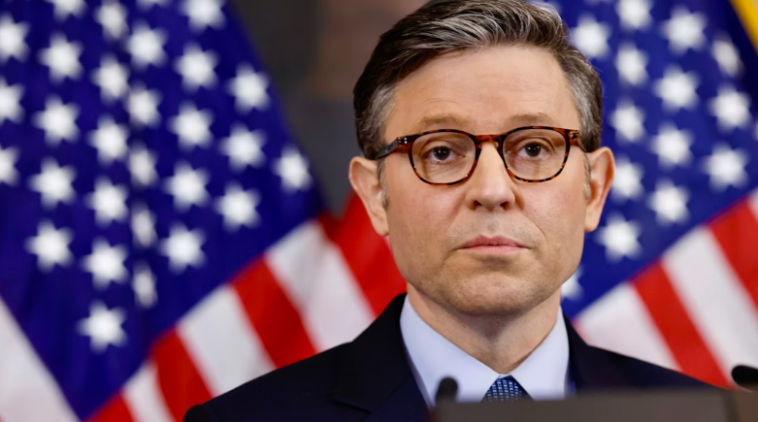House Speaker Mike Johnson’s proposed spending deal to prevent a government shutdown has been scrapped following significant pushback from within the Republican Party. The withdrawal of the plan underscores mounting tensions within the GOP over government spending and fiscal priorities.
Details of the Spending Deal
The proposed continuing resolution (CR) aimed to extend government funding through March 14, 2025. It included over $100 billion in disaster aid, $10 billion for farmers, and funding for federal infrastructure projects. However, additional provisions, such as congressional pay raises and allocations for the Global Engagement Center, drew criticism from conservative lawmakers who labeled the package as excessive and fiscally irresponsible.
The bill’s detractors argued that it was packed with unnecessary spending and special interest giveaways, going against conservative principles of limited government and fiscal restraint.
Opposition From Within
President-elect Donald Trump and Elon Musk, co-leader of the upcoming Department of Government Efficiency (DOGE), were vocal critics of the bill. Trump called for Republicans to reject the proposal, demanding a “clean” CR without extraneous provisions. “Any Republican who supports this bloated spending bill will face primary challenges,” Trump warned, signaling a hardline stance on fiscal discipline as his administration prepares to take office.
Elon Musk echoed these sentiments, describing the CR as “the largest pork-laden spending bill in history” and urging GOP lawmakers to halt all legislative activity until the new administration takes charge.
The Fallout
The withdrawal of Johnson’s spending deal leaves Congress in a precarious position as the current funding measure is set to expire at 12:01 a.m. on Saturday. Without a new agreement, the government faces a shutdown, adding urgency to negotiations on Capitol Hill.
Speaker Johnson has yet to outline an alternative plan, and divisions within the Republican Party make consensus increasingly difficult. Hardline conservatives have called for deeper cuts to federal spending, while moderates warn against the economic and political fallout of a prolonged shutdown.
Broader Implications
The scrapped spending deal highlights the growing influence of fiscal conservatives within the GOP and the challenges Speaker Johnson faces in managing competing factions. The controversy also sets the tone for Trump’s second term, with a clear emphasis on reducing government spending and prioritizing accountability.
While some Republicans view the withdrawal as a victory for fiscal responsibility, others worry it signals dysfunction within the party. The inability to pass a spending measure could weaken GOP leverage in future negotiations and erode public trust in their ability to govern effectively.
What’s Next
With time running out, Congress must quickly craft an alternative plan to avert a shutdown. The clock is ticking, and the path forward remains unclear as party leaders scramble to bridge divides and find common ground.
The situation underscores the challenges of governing in a divided political climate, with fiscal policy once again at the forefront of the national debate. As the January 20 transition of power approaches, this battle over spending sets the stage for a contentious start to the Trump administration.


